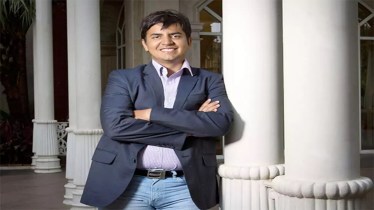Bhavish Aggarwal has already outlined his plans for 2025, which he has termed the “year of products” for Ola Electric. Reason: the 39-year-old co-founder and CEO of Ola wants to launch one product every month in the coming year. Aggarwal should keep his promise as the year going by has been unremarkable for a man who mostly made headlines for his avoidable controversial remarks, as well as the manufacturing defects and poor after-sales-service of his electric scooters.
It was an unpleasant surprise from a man who has long been celebrated as one of the country’s most innovative entrepreneurs. In fact, 2024 had started well: in December 2023, Aggarwal announced Krutrim, a ‘made in India’ large language model (LLM) and generative artificial intelligence (AI) platform on the lines of OpenAI’s ChatGPT and Google’s Gemini. Within a month—by January 2024—Krutrim turned a unicorn by raising $50 million at a valuation of $1 billion, becoming not only the first unicorn of the year but also the first AI startup in the country to achieve the milestone.
But then, Aggarwal’s acerbic tongue seemed to have got the better of his business sense. It all started when in the middle of the year, he entered into a spat with Microsoft-owned professional networking site LinkedIn. While domestic startups have been having run-ins with big-tech firms, in the case of Aggarwal, it was over a trivial issue—his ire was over LinkedIn removing his post on ‘pronoun illness’. Furious, he accused the platform of imposing a ‘forced ideology’ over gender pronouns. In response, Aggarwal decided to move Ola’s entire workload out of Microsoft Azure to its own cloud platform, Krutrim.
LinkedIn certainly was at fault for removing the post under the garb of its policies. However, Aggarwal’s reaction to turn the issue into a conflict between Indian and Western value systems was uncalled for. It would have been better had he moved Ola’s workload from Microsoft to the cloud services of either Google or Amazon. Apart from protesting, he would then have signalled the choices available globally. Turning such fights into local-versus-global is superfluous, as the physical infrastructure — servers — of any domestic cloud service provider is located overseas.
Aggarwal again hit the headlines with an ugly spat with comedian Kunal Kamra. Kamra had taken a potshot at Aggarwal on social media platform X for the poor after-sales service of Ola’s electric scooters. Instead of taking it in stride and responding with humility, or even ignoring such snide remarks, Aggarwal got into a slanging match, which led to a slide in the company’s share prices. Just after this, the consumer affairs ministry charged Ola Electric with failing to address over 10,600 consumer complaints over the past year. It said that if the complaints were not responded to satisfactorily, a class action suit may be initiated against the firm under the Central Consumer Protection Act (CCPA).
Later, the Bureau of Indian Standards got into examining the matter. Surely, these developments didn’t help the company’s cause.
Aggarwal had another brush with controversy when he launched, with much fanfare, Ola Maps. True to his style, he needlessly took a dig at Google Maps, challenging its dominance and urging developers to move from it to his firm’s version. The boast did not last long as another domestic startup, MapmyIndia, sent Ola a legal notice, accusing the firm of copying its data to build Ola Maps. MapmyIndia accused Ola of saving its data and duplicating the software codes to introduce its Maps platform.
Despite these controversies, Aggarwal’s achievements in building resilient and innovative businesses cannot be overlooked. However, he could do better by rethinking his strategy. There is no point using the advancements made by his firm to target other global players and fight personal battles. Aggarwal should draw the right lessons from them – India needs people like him who can lead transformative businesses.
